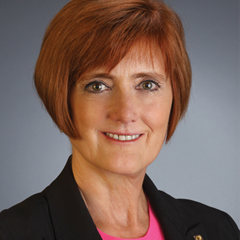
Leadership Tips for Recruiting, Retaining and Empowering Employees
Bob Kronemyer
Giving employees more personal control and more authority allows them to work both independently and collaboratively to make good, sound decisions.
Read More

Giving employees more personal control and more authority allows them to work both independently and collaboratively to make good, sound decisions.
Read More
It’s probably safe to say that leading a hospital, health system or other facility in the care continuum, even before the days of a worldwide pandemic and incessant cyberattacks, has never been an easy job.
Read More
Although you are reading this after the damage done by Hurricanes Helene and Milton, I am sure the devastation is still top of mind. Like me, you probably checked in on the well-being of family, friends or colleagues.
Read More
Healthcare organizations have a growing need for ethics resources. Although they have a long history of providing them to help clinicians address various provider-patient and family ethics challenges, the organizational ethics field is a newer area focusing on administrative decision-making, clinical practices and policies, as well as the institution’s overall culture in relation to its core values and mission.
Read More
Health systems are synonymous with healing, and for survivors of interpersonal violence, a well-resourced, post-discharge support system is essential to promote safety and resilience.
Read More
For healthcare leaders, ensuring the safety of the patients who place trust in their providers is the highest priority.
Read More
The possibility of a cancer diagnosis often ignites anxiety in patients, leaving them with a sense of urgency to make the soonest available oncology appointment.
Read More
Physician discontent poses a major challenge to the U.S. healthcare system, impacting patient access, services and the quality of care provided.
Read More
Effective healthcare leadership is critical to navigating heavily matrixed environments and ensuring organizational success.
Read More
Governance has multiple meanings, depending on the context; it is the table setting that determines the code of conduct and sets the culture for how a group or organization is going to operate.
Read More
The importance of leadership and culture to improve patient care is cited and emphasized so routinely, it might seem cliché, but it’s nonetheless true: Failures to improve care experience and outcomes are almost always traceable to the top.
Read More
Striving toward high reliability, in which harm prevention and process improvement are second nature to all employees, can dramatically improve care delivered to patients.
Read MoreAnne Tyrol, RN, FACHE, CNO/senior vice president, Patient Care Services, Cheshire Medical Center/Dartmouth-Hitchcock Keene (N.H.), has been appointed Interim Regent for New Hampshire.
Read More
In January 2024, ACHE conducted a survey of hospital CEOs to learn more about the causes of workforce shortages and how hospitals are addressing the issue.
Read MoreDid you know that when you joined ACHE, you were automatically enrolled in your local chapter? For instance, if you live in Manassas City, Va., your chapter is National Capital Healthcare Executives, which is highlighted in this issue.
Read MoreThe American College of Healthcare Executives highlights members who were recently promoted, changed positions or retired.
Read More
